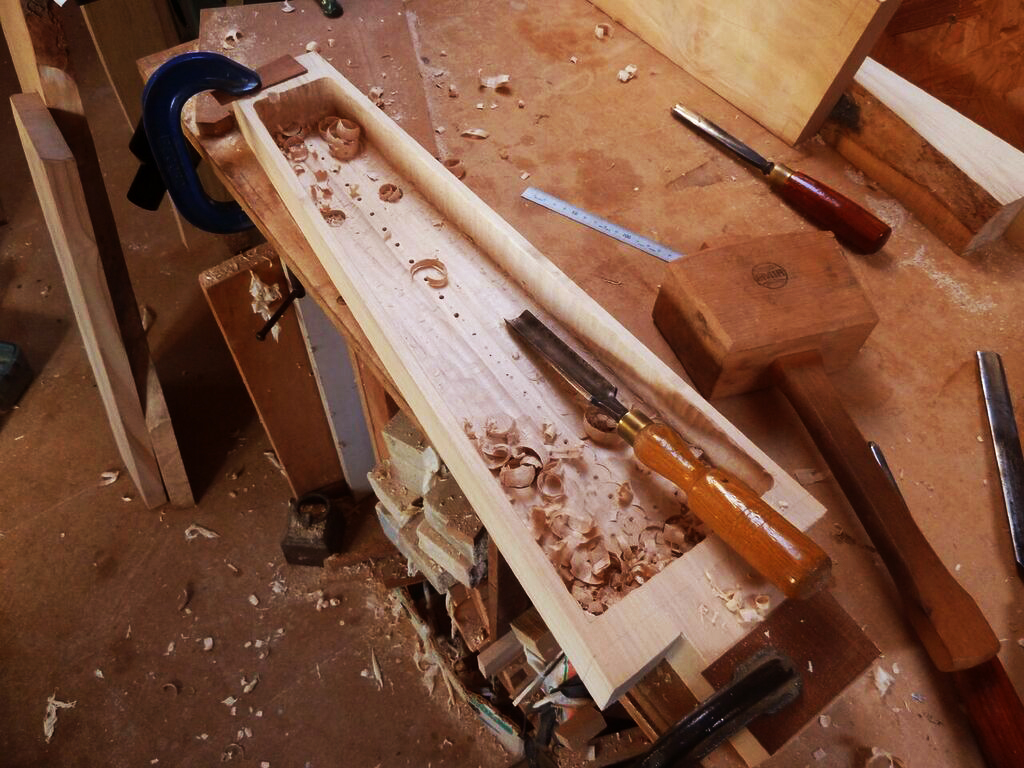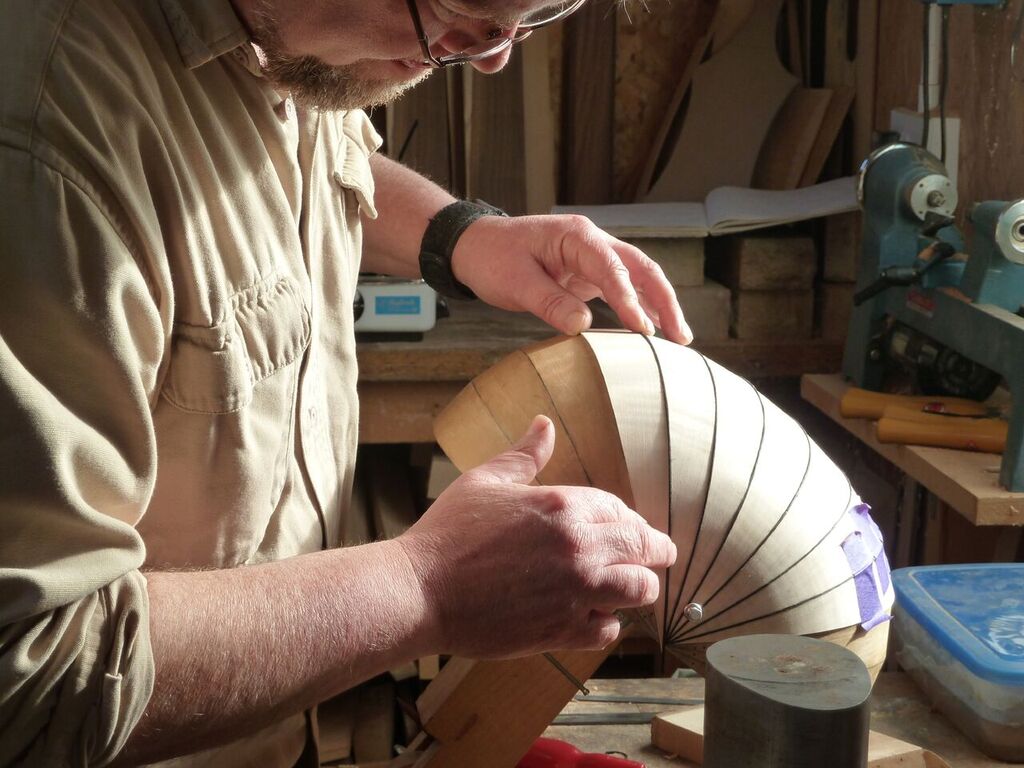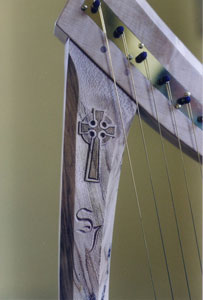
The scaling of my wire strung clarsachs was originally determined by studying extant examples in Ireland and Scotland, carvings and iconography, upon which all my subsequent designs were based. They have a very characteristic shape with large hollowed out soundbox; and the sound, perhaps best described as bell-like, is a product of the relatively high tension brass strings. As with most of my harps, I usually use a compromise string spacing which enables players to use a finger pad technique as well as the traditional clarsach finger nail technique. As ever do not be afraid to ask about bespoke setups. I hope you enjoy the pictures below which also include some possible decorative additions, eg. carvings and brass cheek bands. For more see Carvings and Decorations page. You’ll notice a Queen Mary below - copies of some of the other museum originals also a possibility, please ask if that is your requirement.
19 String
Strings Brass | Tuning f - c’’’ | Height 60cm | Weight 1.8kg (4lb)
22 String
Strings Brass | Tuning c - c’’’ | Height 70cm | Weight 2.2kg (4lb 13oz)
24 String
Strings Brass | Tuning c - e’’’ | Height 83cm | Weight 3kg (6lb 6oz)
26 String
Strings Brass | Tuning G - d’’’ | Height 95cm | Weight 3.8kg (8lb 7oz)
29 String (Queen Mary)
Strings Brass | Tuning G - g’’’ | Height 80cm
Pricing
Notation: C''' - C'' - C' - c - c' - c'' - c'''
c' = middle c
Medieval/renaissance with brass strings & hollowed out soundbox, usually tuned diatonically or similar ( eg. na comhluighe) Several sizes available.
| From | f Pitch | From £1,700 |
| 19 Strings | ||
| Down to | G Pitch | From £4,800 |
| 26 Strings | ||
| Queen Mary Style | G Pitch | From £4,900 (as shown or similar £6,990) |
| 29 Strings |
N.B. Traditionally there are no access holes in the back of the soundbox (a print out is supplied when you buy a harp with instructions on string replacement); also none of these harps are fitted with hooks, blades or sharping levers ~ these devices originated in the mid/late 17th century. Most historical harps with a single row of strings were tuned diatonically although some octaves may have been tuned to include sharps and flats if and when required. All my harps can easily be tuned to different keys although generally I do not advise raising the pitch of the entire harp without altering the string gauges, as this would greatly increase the tension on the instrument as a whole – of particular importance on clarsachs whose strings are already set at a high tension.
Carvings , brass work, inlays, colouring etc. are optional extras. I usually keep about 12 different gauges of brass wire for spares which is available to buy in 2 meter coils @ £7 each plus p&p. Minimum order 2 coils.
Sound sample













